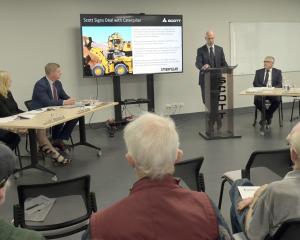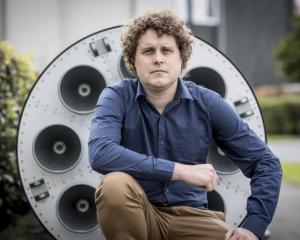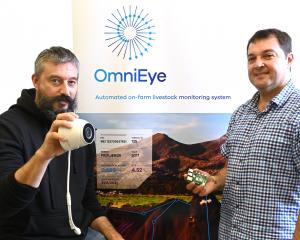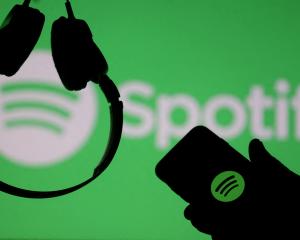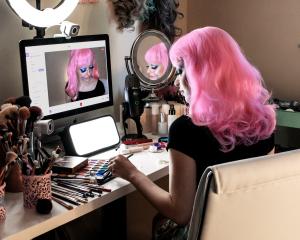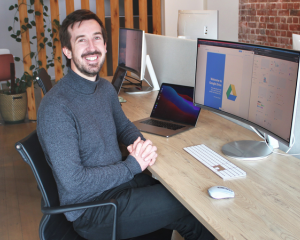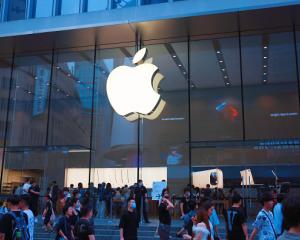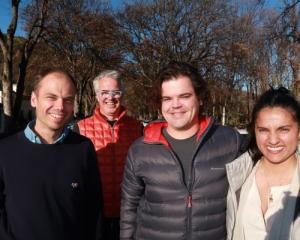A devout Christian, Werle covers at least a chapter a day.
And she takes detailed notes, often flipping from book to book researching and double-checking passages.
There was a time when Werle carried her dog-eared Bible everywhere she went, scribbling in the margins as she read.
These days she accesses the Word and makes her notes on her iPod Touch.
"It's nice to have a portable and easily accessible copy with you when you're out and about," said Werle, who attends the non-denominational New Day Church in Greendale, Wisconsin.
"You never know when you might get into a discussion with a friend about what it does or doesn't say, or run into someone who has questions."
Werle is among the millions who have turned to hand-held technology to further their faith and spirituality.
Software developers have obliged, creating hundreds of applications for mobile devices that do everything from translating ancient texts to alerting a user when it's time to pray.
Though data on religion-related apps is hard to come by, industry observers say it's a small but growing niche in what is projected to be a $25 billion industry by 2015.
"Religion is starting to catch up with the technology, and that's making it more accessible," said Daniel Ionescu, a London-based writer for PCWorld magazine.
Apple dominates the industry with more than 225,000 apps at its online App Store, followed by the Google-based Android Marketplace with more than 30,000, though other, smaller, competitors abound.
Throughout the Milwaukee area, people of faith are embracing the technology.
"I tell people I'm compensating for my 17th-century looks," said Rabbi Benzion Twerski, of Orthodox Congregation Beth Jehudah on Milwaukee's north side, who sports both an iPhone and iPad.
Twerski has apps that let him read the Torah, the Talmud and the Siddur, the book of daily prayers; recite the appropriate blessings for meals; and vet the thousands of ingredients in his work inspecting kosher food factories.
"When I used paper ... I could be sitting a long time. Now, it takes me just seconds to look for an ingredient," he said.
Donald Rappe, an associate professor in the Department of Theology at Mount Mary College, uses apps to help him translate ancient biblical texts, bone up on his Hebrew and pull down scholarly lectures by colleagues in his field.
And Muslim physician Mushir Hassan has one of the Koran and another that tells him when it's time to pray, wherever he is in the world.
"It goes with me everywhere," said Daniel Johnson, president of Wisconsin Lutheran College, who uses his iPhone to access the Bible, daily devotions, Christian music and sermons.
"There's not been a time in the history of man when it's been as convenient to focus on one's relationship with the Lord."
Little is known about religious app consumers.
But if the Internet story is an indication, they're probably people who already lead strong religious lives, said Lee Rainie, director of the Pew Research Centre's Internet and American Life Project.
"It takes a while for any new technology to establish a presence and meaning with people who are less connected to religion - or sports or finance," said Rainie.
"We don't know yet how this might be transforming people's spiritual lives. But it's interesting to see that a lot of churches and, more broadly, denominations are hoping ... new technologies will give them new pathways to younger seekers," he said.
It has certainly changed the way many users experience their faith.
It's not unusual, said Twerski and others, to see worshippers consult their hand-helds during services in synagogues, churches and mosques.
For Werle, who frequently studies her Bible in coffee shops, it's made the experience more private.
"When you're reading a full-size Bible, it's a little obvious, and I've had complete strangers walk up to me and start conversations," she said.
"That doesn't happen now. You lose that opportunity to meet with people of the same faith background, or to talk about God with people who don't know and may be searching."
For some, it has become too intrusive.
"To be fair, my wife hates it," said Twerski .
"She dislikes it to the point where I turn it off when I'm in her presence."
Like any new technology, the advent of the app has sparked discussion about the nature and boundaries of its uses.
Some of that is centred on the industry itself, which operates on a dual model: a content gatekeeper system favoured by Apple versus the open format of the Android Marketplace.
The difference was highlighted last year when Apple rejected the Me So Holy app, which lets users superimpose their faces on to images of Jesus and other religious figures, as "objectionable".
The app is now available on the Cydia Store, a kind of black market for people willing to "jailbreak", or alter, their Apple devices to download apps not available at the App Store.
"In the technology world, there's reason to be careful and to curate material the way Apple does," said Rainie.
At the same time, open systems led to the most innovation, he said. Rappe said users needed to vet app content and police usage as they would any new technology and information resource.
"From an intellectual and spiritual point of view, you have to use some discretion. You have to decide, is it something that is helpful in a meaningful way, or is it a distraction?"


